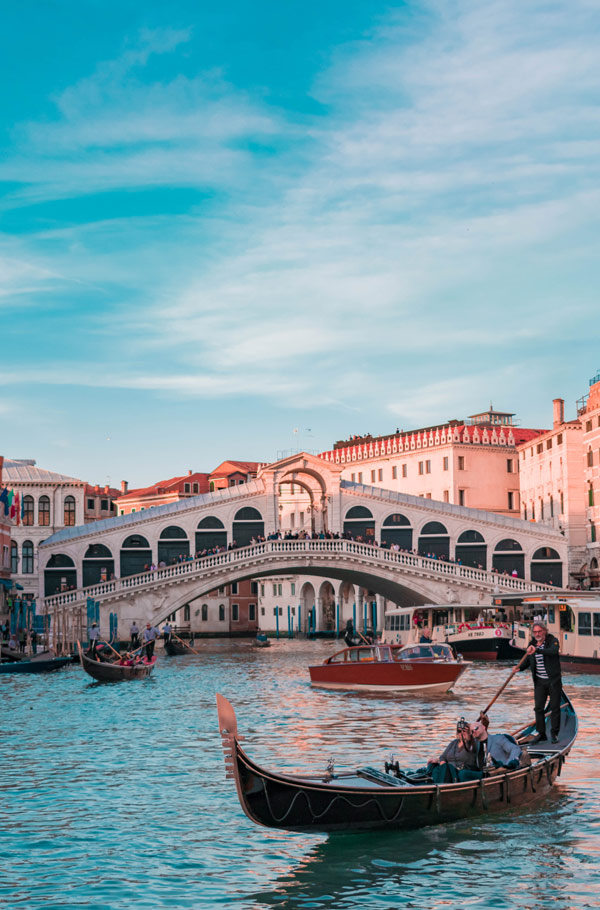不消费就别来!世界各地景区用旅游税驱逐“低价值游客” Tourist destinations are trying to deter “low value” travelers with new taxes
中国日报网 2019-02-19 08:49

对普通游客来说,外出旅游能省则省,尽量少花钱;但是对于旅游景点而言,最怕的是景点挤满了游客、面临过度旅游困境,而游客消费又达不到他们的期望值。为此,世界各地景点陆续推出旅游税,试图逼退那些消费少的“低价值游客”。

Countries and cities have generally tried to encourage tourism—based on the premise that holidaying visitors and the money they spend fosters economic development.
通常来说,国家和城市都是鼓励旅游的,前提是来度假的游客和他们的消费能刺激经济增长。
But in the age of overtourism, some popular destinations have reached their limit. City centers are clogged with avocado-toast-seeking hoards, historic sites are trampled by selfie-stick toting visitors, and locals are priced out by rising rents. To add insult to injury, many of these tourists don’t spend much money: They use apps to sleuth out super-budget deals, disembark from cruise ships with full bellies to stroll around and then return to their buffets and cabins, or forgo hotels for cheaper accommodation in neighborhoods that were once solely the domain of locals.
在这个过度旅游的时代,一些热门景点的接待能力已经超负荷。市中心挤满了寻找美食的吃货,历史景点被大群自拍游客破坏,本地人则因为旅游业兴旺催涨房租而租不起房。更讨厌的是,许多游客的消费都不高:他们借助应用程序制定超划算的攻略,在游轮上吃饱了肚子才下船游览,然后又返回游轮吃自助餐,不住酒店而选择廉价的民宿。
sleuth[sluθ]: vi. 侦查
buffet[bəˈfe; bʌfɪt]: n. 自助餐
forgo[fɔr'ɡo]: vt. 放弃;停止;对…断念
That’s why so-called tourist taxes are cropping up in destinations around the world. Historically, these taxes have been used to fund tourism boards, hospitality trade groups, and destination marketing campaigns—the point being to bring more people into the country down the line.
这就是为什么世界各地的景点都陆续开始征收旅游税。在历史上,旅游税是用来给旅游局、酒店行业组织和景区营销活动提供资金的,目的是在未来吸引更多人来本地旅游。
But a slew of new tourist taxes, or plans for them, in Venice, Amsterdam, Bali, Edinburgh, and New Zealand are taking an opposite tact: They’re using tourist tax revenue to both help the destination control the effects of overtourism, and also to disincentivize certain kinds of travelers.
然而,威尼斯、阿姆斯特丹、巴厘岛、爱丁堡和新西兰的新旅游税却是为了达到相反的目的:他们征收旅游税既是为了帮景点控制过度旅游造成的不良影响,也是为了逼走某些类型的游客。
Elizabeth Becker, the author of Overbooked: The Exploding Business of Travel and Tourism, says the rise of these taxes suggests governments are starting to see that when it comes to tourism, you can have too much of a good thing.
《超售:旅游业的迅猛发展》的作者伊丽莎白·贝克说,这些税种的兴起意味着政府开始意识到,旅游业太兴旺也可能好事变坏事。
"It’s only in [the] last few years you have tourism taxes that are going to control tourism,” Becker said. This is because more and more destinations are recognizing that “there is no getting around the fact that there is a carrying capacity.”
贝克说:“控制游客数量的旅游税是几年前才开始出现的。这是因为越来越多景点意识到接待能力终归是有上限的。”
Many of these measures aren’t simply centered on driving down numbers, but rather, attracting a “lower impact, higher value traveler,” she said—one that is going to spend some money, in addition to using resources or crowding the destination. She cites the example of Venice, which for years did little to stem the tide of visitors displacing locals. Now, in addition to a new tourist tax, the mayor has rolled out new measures meant to moderate tourists’ behavior and their effect on the city.
她说,景点的许多措施不光是要减少游客人数,而且还要吸引“对环境影响更小、价值更高的游客”,最好就是多多花钱、少占用资源、不把景点挤爆的游客。她举威尼斯为例,多年来威尼斯几乎没有采取措施来阻挡游客挤走本地人的趋势。如今,除了新旅游税,威尼斯市长还出台了多项新措施,旨在调节游客及其行为对城市造成的影响。
So how do these taxes work to deter “low value” tourism? Amsterdam provided an instructive example at the beginning of January when it implemented a day tourist tax of €8 per person. About a week later, two cruise lines announced they would no longer be stopping in port, and two more lines followed suit in February. These cruise ship “day-trippers” don’t stay in a hotel or eat much at local restaurants (why would you, when you have an all-you-can-eat buffet waiting for you on board?), and are generally in and out of the destination quite quickly. Though the tax—equivalent to the cost of a couple of beers—is relatively small, it was enough to put off extremely price-sensitive cruise lines. And it gave Amsterdam an effective way to say, “Thanks, but no thanks.”
那么这些新税收要如何能够赶走“低价值”旅游人群呢?阿姆斯特丹在一月初做了一个示范:向每位游客每日征收8欧元(61元人民币)的旅游税。大约一周后,两家游轮公司宣布将不再在该港口停靠,二月份又有两家游轮公司相继效仿。这些游轮上的“一日游游客”不会住酒店,也不会在本地餐厅消费太多(如果游轮上就有自助餐厅,谁会花这个钱呢?),而且通常在到达后很快就会离开。尽管这项税的金额不多,不过是一两罐啤酒的钱,但足以吓退那些对价格极度敏感的游轮公司。阿姆斯特丹人用这种有效的方式告知他们:感谢你的到来,不过请你别来了,谢谢。
Not all these tourist taxes are meant to discourage tourists altogether from visiting. Bali—which has seen a huge uptick in visitors since it starred in Elizabeth Gilbert’s 2006 travel memoir Eat Pray Love—is one of the destinations mulling a tax. The roughly $10 fee will be used to preserve the environment and Balinese culture, which has been overrun with yoga retreats and acai bowl cafes. The Jakarta Post reports that officials aren’t trying to drive away travelers, mostly from Australia and China, but see this as a way for travelers to “contribute to preserving” the local culture.
不过,也不是所有旅游税都是为了彻底赶走游客的。自从伊丽莎白·吉尔伯特的旅游回忆录《美食、祈祷、恋爱》在2006年出版后,书中对巴厘岛的描写就吸引大量游客蜂拥而至。如今,瑜伽会所和巴西莓碗餐厅泛滥的巴厘岛也在考虑推出旅游税,这项10美元(68元人民币)左右的税收将用来保护巴厘岛的环境和文化。《雅加达邮报》报道说,当地官员不是想赶走游客(多数来自澳大利亚和中国),而是希望游客也能为当地文化的保护“尽一份力量”。
mull[mʌl]: vt. 思索或思考某事物
Overtourism is often oversimplified, and it’s easy to blame the tourists themselves, or industry-disrupting companies such as Airbnb. But factors such as the rise of low-cost airlines, the growth of the cruise industry, and the failure of some governments to put constraints on growth are often underplayed, Becker says.
贝克指出,过度旅游经常被看得太简单了,人们很容易将问题归咎于游客自身或爱彼迎等扰乱行业秩序的企业。然而,廉价航班的兴起、游轮产业的发展,以及一些政府未能限制旅游业过度发展,这些因素的作用经常被轻描淡写。
And as the democratization of travel continues, officials will continue to face the same conundrum: Can a destination benefit from tourists without completely destroying what made it appealing in the first place?
伴随着旅游民主化的进程,各地官员将继续面临同样的难题:一个景点能否既受益于游客,又不让游客完全毁掉最初的美好呢?
conundrum[kə'nʌndrəm]: n. 难题
英文来源:石英财经网
翻译&编辑:丹妮

















 英语点津微信
英语点津微信 双语小程序
双语小程序